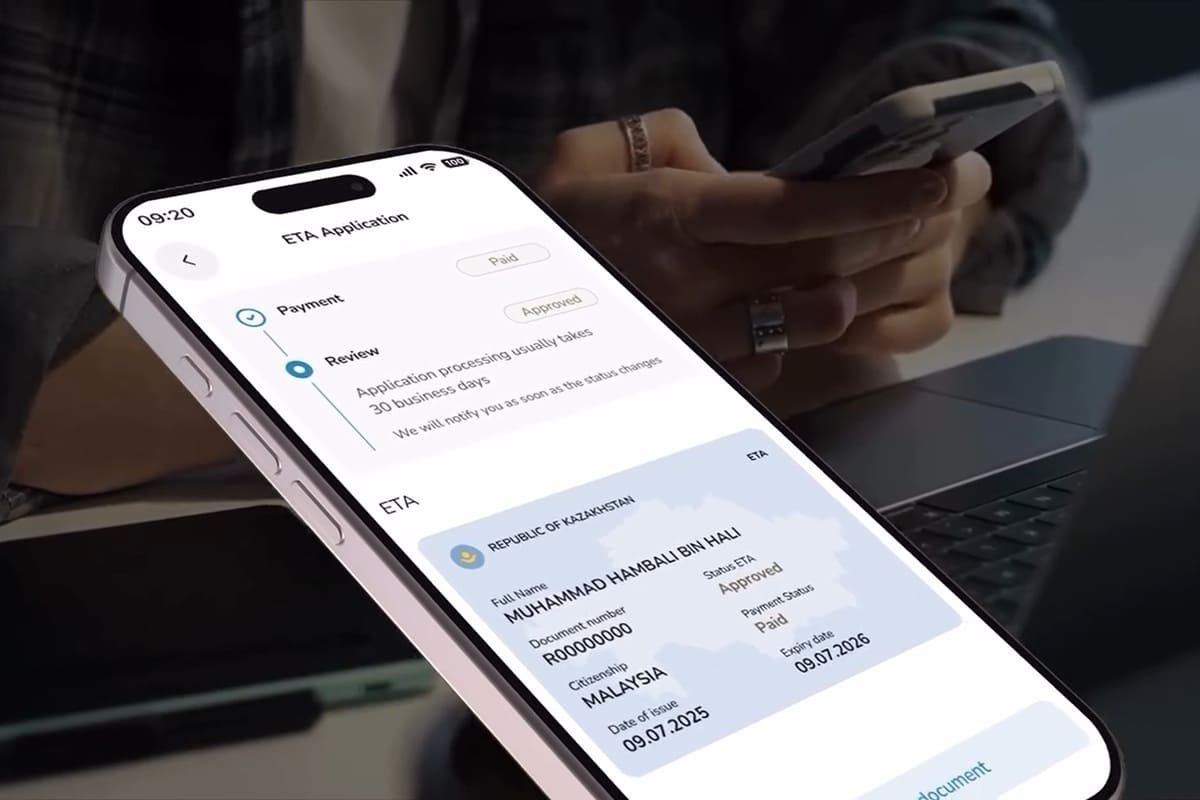Planning to travel in 2025? Here’s a rundown of the new entry requirements being introduced by various destinations: ETA in the UK and Israel, visas in Namibia, ETIAS in Europe, and more. Here’s everything you need to know to prepare your trips and avoid unpleasant surprises at border checkpoints.
Traveling in 2025 will look a little different. With the introduction of new entry formalities and updates to existing systems, many countries are adjusting their immigration policies.
Whether you’re planning a trip to Asia, Europe, or Africa, here’s an overview of what to expect starting January 1, 2025.
January 1, 2025: Israel introduces the ETA-IL
Starting January 1, 2025, Israel will launch a new entry system called ETA-IL (Electronic Travel Authorization for Israel). This initiative is part of a broader strategy to enhance border security and modernize entry processes for foreign visitors.
Similar to systems already in place in other countries, such as the U.S. ESTA or Canada’s eTA, the ETA-IL will require citizens of 99 visa-exempt countries to obtain electronic travel authorization before arriving in Israel.
Applications must be submitted online a few days prior to travel, enabling Israeli authorities to pre-screen potential visitors and streamline entry procedures.
January 1, 2025: passport requirement for Tunisia
Another significant change on January 1, 2025: Tunisia will require all visitors, including European nationals, to present a passport valid for at least three months to enter the country.
This marks the end of the current allowance for EU citizens, who could previously travel to Tunisia for organized tourist trips with just a national identity card.
January 1, 2025: Thailand makes its e-Visa accessible to all
From January 1, 2025, Thailand will be extending access to its electronic visa system (e-Visa) worldwide. This measure will enable travelers of all eligible nationalities to apply for their visa online, simplifying administrative procedures and reducing waiting times.
In addition to increasing convenience for visitors, this initiative aims to position Thailand as an even more attractive destination on the international tourism scene. With this extension, the kingdom hopes to welcome more travelers and boost its economy, while reinforcing its capacity to manage migratory flows.
January 1, 2025: Cambodia reduces e-Visa fees
Cambodia has announced a price reduction for its electronic visas (e-Visas) starting January 1, 2025, as part of an effort to boost tourism and attract more international visitors.
From January 1, the cost of a tourist e-Visa will drop from $36 to $30, while the business e-Visa fee will decrease from $42 to $35. These lower fees make e-Visas more accessible for travelers seeking quick and convenient entry.
This initiative supports Cambodia’s efforts to revitalize its tourism sector and appeal to international professionals and investors.
Spring 2025: UK rolls out ETA
The UK will fully roll out its Electronic Travel Authorisation (ETA) system in spring 2025, a measure designed to strengthen border control while simplifying entry procedures for overseas visitors.
Starting January 8, 2025, non-European nationals from visa-exempt countries will be required to obtain an ETA before traveling to the UK. From April 2, 2025, this requirement will extend to European citizens.
Applications must be completed online, offering a fast, automated process to secure electronic travel authorisation linked to the traveler’s passport.
April 1, 2025: Namibia implements visa requirement for 31 nationalities
In Africa, Namibia will introduce visa requirements for citizens of 31 countries starting April 1, 2025. This measure applies to nationals of countries that previously enjoyed visa exemptions without offering reciprocal benefits to Namibians.
Travelers from affected nations, including France, Belgium, Canada, and the United States, will now need to apply online for a visa prior to arrival in Namibia.
2025: Thailand plans for ETA implementation
Thailand is preparing to implement an Electronic Travel Authorization (ETA) system in 2025. This initiative aims to enhance border management while facilitating international tourism.
Under this system, travelers from visa-exempt countries would need to obtain prior authorization before their arrival. Thai authorities are currently working on the specifics, with the goal of simplifying entry procedures, preventing potential security threats, and maintaining Thailand’s status as a premier Southeast Asian travel destination.
For now, travelers from 93 countries can continue visiting Thailand without a visa or ETA.
2025: EU to launch EES and ETIAS
The European Union will take a major step in border management in 2025 with the rollout of two complementary systems:
- EES (Entry/Exit System): A digital system to track traveler entry and exit.
- ETIAS (European Travel Information and Authorization System): An electronic travel authorization for visa-exempt travelers.
The EES, set to launch ahead of ETIAS, will replace manual passport stamps with electronic entry and exit tracking. It will also record biometric data (fingerprints and photos) and automatically monitor the duration of authorized stays.
Shortly afterward, ETIAS will be introduced for visa-exempt travelers, requiring them to secure electronic authorization before departure. Designed to enhance internal security, ETIAS will screen passengers against various European and international databases. While some see this as an additional administrative hurdle, European authorities highlight its importance in preventing terrorism and crime while facilitating legal migration flows.
Other destinations adjust entry requirements in 2025
- Belarus launching an e-Visa system on March 20, 2025, for citizens of 67 nationalities, streamlining traveler procedures while enhancing border control.
- Democratic Republic of Congo (DRC) expected to introduce an e-Visa system in early 2025, providing a modern alternative to traditional processes.
- Senegal considering reciprocal visa requirements for citizens of countries that impose restrictions on Senegalese nationals.
- South Africa preparing to launch an ETA in 2025 to modernize and ease entry for international visitors.
- Tunisia developing an e-Visa platform, though implementation details remain under discussion.
- Sri Lanka exploring the possibility of offering free visas to visitors from 39 countries, potentially starting in early 2025 to boost tourism.
- Russia planning to extend the validity of its e-Visa from 16 days to 30 days for citizens of 64 countries, making travel more convenient.
Best wishes for your 2025 travels
As 2025 brings a host of changes to travel formalities, staying informed will be key to planning your trips and avoiding complications.
The VisasNews team thanks you for your continued support and wishes you a fantastic 2025 filled with exploration and successful journeys. May your adventures around the world create lasting memories, and may these new regulations simply be another step toward incredible international experiences.
Bon voyage, best wishes and happy New Year!








Why is Japan ETA not mentioned in your list?
Very informative